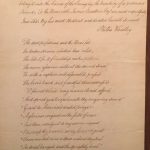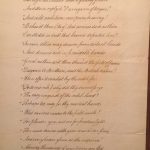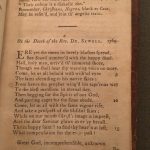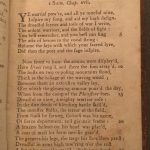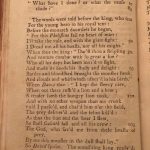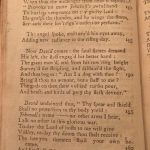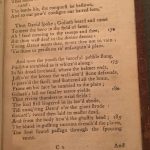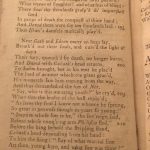Phillis Wheatley was one of the first educated, black poets of her time, and the first to publish a book of poetry. Wheatley was born in West Africa in 1753 and was sold into slavery at the age of 8 to the Wheatley family in Boston Massachusetts. John and Susanna Wheatley educated Phillis in the Classics, Latin, and Greek. Soon after she began her studies, Phillis Wheatley began publishing renowned poetry that reflected her advanced mastery of her extensive education. Multiple newspapers quickly picked up her poetry in North America and the UK and Wheatley was affectionately dubbed “exceptional” by fans of her work. Most of Wheatley’s poems were characterized by her high-falutin language catered various widely respected individuals of her time that she admired. However, despite the fact that it was more overt, Wheatley still utilized her growing platform to address different issues in America she cared deeply about. Wheatley’s writing career took off in the years leading up to the Revolutionary War, when many of the values we associate with the American identity today were shaping. As a result, much of the country was optimistic for the future of an independent America. For Wheatley, this distant version of America was a place where African Americans were seen as equal to white people because they are all “children of God.” The first photo depicts Wheatley’s poem “On being brought from Africa to America” where Wheatley reminds her mostly educated, white audience that “Negros, black as Cain” are Christians too. When Wheatley states that Christian “Negros” may be “refined, and join the angelic train,” she is referring to the fact that Christian African Americans have a place in heaven as children of God (Wheatley and Vincent, 2001, 13) . Wheatley is saying something very bold for the time period she is living in. However, Wheatley delivers her bold message in a “gentle” way that forces her white audience to be exposed to it unintentionally by speaking their very Classical and Christian language. Wheatley’s patriotic identity, and thus her devotion to her country and what it could be, allowed her to critique it in order to make it better.
Wheatley demonstrates this patriotism once again in her poem titled “Goliath of Gath.” Wheatley utilizes her poetic retelling of the classic, biblical underdog success story, David and Goliath, to communicate multiple messages to every type of audience that could have access to her work (Wheatley and Vincent, 2001, 19-25). Americans around the country were yearning for a spokesperson that could give them the confidence they needed to declare war for American independence. For many white Americans, the underdog frame of this poem applied to how America was beginning to rise up and gain independence from Britain’s oppressive rule with the help of the favor of God. This message appealed the most to her white American audience in particular because it gave them confidence to fight the war. Wheatley’s message also strengthened the hope that the American people would be able to free themselves from the tyranny of British rule. However, for the African American slaves, and perhaps even Wheatley herself, this poem served as a hopeful look to the future of America where African American slaves rise up from the binding second class citizen status. Neither of these messages are explicitly stated. However, one of Wheatley’s many unique talents included being able to appeal to so many different audiences and communicate what she believed clearly but also so subtly. Wheatley was able to demonstrate devotion to her country and her devotion to the idea of a future where African Americans are no longer second class citizens. She does all this without upsetting either side and it only emphasizes how much she truly wanted America to become the great nation she envisioned. Wheatley equips all her audiences with the hope they need to make this version of America a reality at a time when they needed it most, years before the Revolutionary War.


